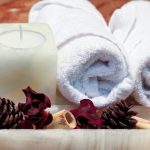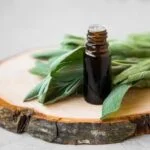Aromatherapy diffusers have become increasingly popular in recent years as people seek natural ways to enhance their well-being and create a soothing atmosphere in their homes or workplaces. In this article, we will delve into the purpose and benefits of aromatherapy diffusers, exploring the science behind their functionality and the variety of positive effects they can have on our mental and physical health.
Whether you are new to aromatherapy or a seasoned enthusiast, understanding how diffusers work and the potential benefits they offer can greatly enrich your self-care routine.
Aromatherapy is a holistic practice that utilizes essential oils extracted from plants to promote well-being on various levels. These concentrated plant extracts have been used for centuries in various cultures for their therapeutic properties.
Aromatherapy diffusers play a crucial role in this practice by dispersing these essential oils into the air, allowing us to inhale and absorb their beneficial compounds. By doing so, diffusers enable us to experience the fragrance and effects of essential oils more efficiently and conveniently than other methods such as topical application.
The benefits of using aromatherapy diffusers extend beyond simply enjoying pleasant scents. Studies have shown that inhaling certain essential oils can positively impact our mental state, relieving stress, anxiety, and promoting relaxation. Additionally, specific blends of essential oils can uplift mood, enhance focus and motivation, or even aid better sleep quality.
The versatility of aromatherapy diffusers allows us to enjoy these benefits in various settings like homes, offices, spas, or yoga studios. In this article, we will explore different types of diffusers available in the market and discuss practical tips for creating a relaxing ambiance with suitable fragrances.
By incorporating aromatherapy diffusers into your daily routine, you can take an active role in elevating your self-care practices and promoting a healthier body-mind connection. In the following sections of this article, we will delve deeper into the scientific mechanisms behind aromatherapy diffusers, explore the specific health and wellness benefits they offer, and provide practical guidance on how to use them effectively.
Whether you are looking to reduce stress, boost your energy levels, improve sleep quality, or simply create a calming ambiance, aromatherapy diffusers can become your trusted companion in enhancing your overall well-being.
The Science Behind Aromatherapy
Aromatherapy diffusers play a crucial role in dispersing essential oils into the air, allowing individuals to experience the therapeutic benefits of aromatherapy. Understanding the science behind how these diffusers work can help users choose the right type of diffuser and maximize its effectiveness.
Mechanisms of Diffusion
There are several mechanisms involved in diffusing essential oils into the air. One common method is through evaporation, where a few drops of essential oil are added to water in the diffuser. The diffuser then uses ultrasonic vibrations to break down the mixture into micro-particles that are released as a fine mist or vapor.
Another popular diffusion method is nebulization, which involves using an atomizer to break down essential oils into tiny particles without water. This creates a concentrated oil mist that is dispersed directly into the air. Heat-based devices, such as candle diffusers or electric heat diffusers, use heat to evaporate essential oils and disperse their aroma.
Types of Diffusers
There are various types of aromatherapy diffusers available on the market, each with its own unique functionalities. Ultrasonic diffusers are one of the most popular options as they use water as a carrier for essential oils and provide both humidity and fragrance in the room.
Nebulizing diffusers are ideal for those who prefer a more concentrated scent and want to experience immediate therapeutic effects. Heat-based diffusers, on the other hand, work well for creating ambient scents but may alter the chemical composition of certain essential oils due to high temperatures.
It’s important to consider factors such as ease of use, coverage area, and personal preferences when choosing an aromatherapy diffuser. Some models may also offer additional features like timers, color-changing lights, or programmable settings for enhanced user experience.
Understanding how aromatherapy diffusers work can help individuals make informed decisions when incorporating these devices into their wellness routines. By choosing the right diffuser and understanding its mechanisms, individuals can fully enjoy the therapeutic benefits of essential oils in their daily lives.
Exploring the Health and Wellness Benefits of Aromatherapy Diffusers
Aromatherapy diffusers offer numerous health and wellness benefits that can enhance both your mental and physical well-being. When essential oils are diffused into the air, they release aromatic molecules that can have a positive impact on your body and mind.
One of the key benefits of using aromatherapy diffusers is their ability to promote relaxation and reduce stress and anxiety. Certain essential oils, such as lavender and chamomile, have calming properties that can help you unwind after a long day or prepare for a restful night’s sleep. Diffusing these oils in the evening can create a soothing ambiance in your bedroom, making it easier to relax and fall asleep.
In addition to promoting relaxation, aromatherapy diffusers can also improve your mood and energy levels. Certain scents, like citrus oils such as lemon or orange, have uplifting properties that can boost your mood and feelings of happiness. These fragrances are especially beneficial during the winter months when many people experience seasonal affective disorder (SAD) or low energy levels.
To experience the full benefits of aromatherapy diffusers, it’s important to choose the right settings and suitable fragrances. Adjustable diffuser settings allow you to control the intensity and duration of fragrance diffusion, ensuring a personalized experience. Experiment with different essential oil blends to find scents that resonate with you and have the desired effects on your mental well-being.
Overall, incorporating an aromatherapy diffuser into your self-care routine can provide numerous health benefits by promoting relaxation, boosting mood, improving energy levels, and enhancing sleep quality. By exploring different essential oils and finding what works best for you personallyabrcan truly elevate your well-being through aromatherapy diffusion.hr.
Creating a Relaxing Atmosphere with Aromatherapy Diffusers
Aromatherapy diffusers not only enhance the ambiance of a space but also have the ability to create a relaxing atmosphere. The calming effects of essential oils can help to reduce stress and anxiety, making them a valuable addition to any self-care routine.
To create a soothing ambiance, it is important to set your aromatherapy diffuser at the right settings and choose suitable fragrances. Most diffusers have different time settings, such as continuous diffusion or intermittent intervals. Continuous diffusion is ideal for those wanting a constant stream of fragrance in the air, while intermittent intervals are perfect for more subtle dispersion or longer-lasting aroma.
When choosing fragrances for relaxation, lavender essential oil is a popular choice due to its calming properties. It has been found to reduce anxiety, promote sleep quality, and even decrease heart rate and blood pressure. Other relaxing scents include chamomile, ylang-ylang, and bergamot. These fragrances help to alleviate tension and induce a sense of calmness in the mind and body.
Practical Tips for Creating a Relaxing Atmosphere
| Tips | Description |
|---|---|
| Experiment with different essential oil blends | Some combinations like lavender with chamomile or bergamot with ylang-ylang can create unique relaxation blends. |
| Create a nighttime ritual | Using your aromatherapy diffuser as part of your bedtime routine can signal to your body that it is time to wind down and relax. |
| Place the diffuser in an appropriate location | Put your diffuser in a central area of the room where the fragrance can disperse evenly. Avoid placing it near open windows or air vents. |
By utilizing aromatherapy diffusers, individuals can transform their living spaces into havens of tranquility and relaxation. Whether it’s creating a serene atmosphere before bedtime or simply taking a moment to unwind after a long day, the power of essential oils in promoting relaxation is undeniable. With the right settings and fragrances, anyone can cultivate a calm and soothing environment with the use of aromatherapy diffusers.
Boosting Mood and Energy Levels
The Power of Aromatherapy for Mood Enhancement
Aromatherapy has long been recognized for its ability to affect mood and emotions. The sense of smell is deeply connected to the limbic system in the brain, which is responsible for regulating emotions and memory. By using aromatherapy diffusers, individuals can harness the power of scent to create a positive and uplifting atmosphere.
Uplifting Scents to Enhance Happiness, Focus, and Motivation
Certain essential oils are known for their ability to boost mood and energy levels. For those seeking happiness and joy, citrus scents such as lemon, sweet orange, and grapefruit are excellent choices. These fruity aromas have been shown to promote feelings of positivity and optimism.
When it comes to improving focus and concentration, essential oils like peppermint, rosemary, and eucalyptus can be incredibly effective. These invigorating scents have been found to enhance alertness and mental clarity.
For a dose of motivation during times of lethargy or low energy, try diffusing stimulating oils such as ginger or cinnamon leaf. These warming aromas can help uplift the spirit and provide a natural energy boost.
Exploring Essential Oil Blends for Mood Enhancement
In addition to single essential oils, many blends have been formulated specifically with mood enhancement in mind. One popular blend is known as “Joyful Bliss,” which combines citrus oils with floral notes like ylang-ylang or geranium for a well-rounded experience that promotes cheerfulness and contentment.
Another commonly used blend for boosting energy levels is “Motivation Magic.” This blend often consists of invigorating oils like peppermint, rosemary, and lemon combined with uplifting scents such as bergamot or clary sage.
It’s important to note that everyone’s response to different scents may vary, so it’s worth experimenting with different essential oils and blends to find the ones that resonate best with you. The beauty of aromatherapy diffusers is their versatility and the ability to customize the experience to suit individual preferences and needs.
Aromatherapy Diffusers for Improved Sleep and Dreamy Nights
Quality sleep is essential for overall well-being, and aromatherapy diffusers can play a significant role in promoting restful nights and creating a serene atmosphere conducive to sleep. Diffused essential oils have been used for centuries to aid relaxation and induce sleep naturally. In this section, we will explore the specific benefits of aromatherapy diffusers in improving sleep quality and highlight some key oils and blends renowned for their sedative properties.
Diffused essential oils have a direct impact on the limbic system, the part of our brain that controls emotions and regulates sleep patterns. By inhaling these fragrances, we stimulate our senses, triggering a relaxation response that helps calm our minds and prepare our bodies for deep slumber. Lavender essential oil is perhaps the most well-known oil for its calming effects on both the mind and body, making it a popular choice in diffuser blends aimed at enhancing sleep quality.
In addition to lavender, other essential oils such as chamomile, bergamot, ylang-ylang, and vetiver are also known for their sedative properties. These oils can be used alone or combined in unique blends to create a soothing ambiance that promotes relaxation and tranquility before bedtime. For those who struggle with racing thoughts or anxiety that interfere with falling asleep, adding a few drops of cedarwood or frankincense essential oil to the diffuser can help create an even more peaceful atmosphere.
By incorporating aromatherapy diffusers into your nighttime routine, you can establish a calming ritual that signals to your body it is time to unwind and prepare for restorative sleep. Experimenting with different oils and finding blends that work best for you can be an enjoyable journey that leads you to experience dreamy nights filled with deep relaxation.
Practical Applications
Aromatherapy diffusers are incredibly versatile and can be used in a variety of settings to create a soothing and relaxing atmosphere. Whether it’s in the comfort of your own home, at the office, in a spa, or even in a yoga studio, aromatherapy diffusers can enhance the ambiance and provide numerous benefits for those present.
In homes, aromatherapy diffusers are popularly used to create a calming and inviting environment. The gentle release of essential oils into the air can help reduce stress levels, promote relaxation, and improve overall well-being. Diffusing essential oils like lavender or chamomile before bedtime can also help facilitate restful sleep.
In an office setting, where stress and fatigue can often be prevalent, aromatherapy diffusers can play a significant role in improving productivity and mood. Uplifting scents such as citrus or peppermint can promote focus, energy, and motivation. Diffusing these oils during work hours can invigorate the mind and boost creativity.
Spas and wellness centers often utilize aromatherapy diffusers to set the tone for relaxation and rejuvenation. With carefully selected essential oil blends, such as eucalyptus or lemongrass, these establishments create an environment where clients feel instantly calm and pampered.
Yoga studios benefit greatly from the use of aromatherapy diffusers as well. The incorporation of specific scents like frankincense or sandalwood helps to deepen meditation practices, enhance mindfulness, and create a sacred space for practitioners.
| Setting | Recommended Essential Oils |
|---|---|
| Home | Lavender, Chamomile |
| Office | Citrus, Peppermint |
| Spa | Eucalyptus, Lemongrass |
| Yoga Studio | Frankincense, Sandalwood |
Maintenance and Safety Tips
Maintaining and using aromatherapy diffusers responsibly is essential for ensuring their longevity and your safety. By following proper maintenance techniques and taking necessary safety precautions, you can enhance your experience with aromatherapy diffusers and enjoy the benefits they offer for a long time. Here are some maintenance and safety tips to keep in mind:
- Cleaning: Regular cleaning of your aromatherapy diffuser is crucial to prevent the buildup of residue or bacteria. Follow the manufacturer’s instructions for cleaning, as different types of diffusers may require specific cleaning methods. Generally, most diffusers can be cleaned by wiping out any excess oil with a cloth and using a mixture of water and mild soap to clean the reservoir.
- Essential Oil Selection: It’s important to choose high-quality, pure essential oils that are suitable for use in an aromatherapy diffuser. Look for oils that are labeled as therapeutic grade or 100% pure, as these are often recommended for use in diffusers. Avoid using synthetic fragrance oils or diluted oils, as they may not provide the same therapeutic benefits or could potentially damage your diffuser.
- Dilution Guidelines: When using essential oils in your diffuser, it’s crucial to follow proper dilution guidelines to ensure safety and avoid skin irritation or other adverse reactions. Some essential oils are potent and should be diluted with carrier oils, such as almond oil or jojoba oil, before being used in your diffuser. Always consult reliable sources or a certified aromatherapist for guidance on proper dilution ratios.
- Placement: Consider the location where you will place your diffuser carefully. Ensure it is on a stable surface away from direct sunlight or heat sources to prevent any damage to the diffuser or potential fire hazards. Also, make sure it is out of reach of children and pets.
- Operating Time: Pay attention to the recommended operating time specified by the manufacturer for your particular diffuser model. Using your diffuser for extended periods without breaks can lead to overheating or other issues. It’s generally advised to use the diffuser intermittently, allowing it to rest between cycles.
By adhering to these maintenance and safety tips, you can enjoy your aromatherapy diffuser experience while keeping yourself and your surroundings safe. Remember that everyone’s sensitivities and reactions to essential oils may vary, so it’s always a good idea to start with small amounts of oil and observe how your body responds before using larger quantities or experimenting with different blends.
With responsible use, you can create an inviting and relaxing atmosphere in your home or any setting while reaping the benefits of aromatherapy.
Conclusion
In conclusion, aromatherapy diffusers have become increasingly popular for their ability to enhance self-care and well-being. Throughout this article, we have explored the purpose and benefits of these diffusers. We have delved into the science behind how they work and discussed the different types available. Additionally, we have explored the various health and wellness benefits that can be achieved through diffused essential oils.
Aromatherapy diffusers offer a practical solution for creating a relaxing atmosphere and reducing stress and anxiety. By using suitable fragrances and experimenting with different settings, individuals can tailor their experience to meet their specific needs. Moreover, these diffusers can help boost mood and energy levels with uplifting scents that promote happiness, focus, and motivation.
Furthermore, aromatherapy diffusers are not only beneficial for promoting relaxation but also improving sleep quality. The sedative properties of certain essential oils can aid in achieving restful nights and creating dreamy environments. Whether used in homes, offices, spas, or yoga studios, aromatherapy diffusers have proven to be versatile companions for enhancing well-being.
Incorporating aromatherapy diffusers into your self-care routine can greatly elevate your overall wellness. By recapitulating the multiple benefits discussed in this article, it is evident that these devices offer a holistic approach to self-care. So why not explore the world of aromatherapy diffusers and find the perfect fit for your needs? Elevate your self-care experience and embrace the soothing scents that these diffusers have to offer.
Frequently Asked Questions
What are the benefits of aromatherapy diffusers?
Aromatherapy diffusers offer several benefits. Firstly, they provide a convenient way to disperse essential oils into the air, allowing the user to enjoy their therapeutic scent without much effort. This can create a calming and relaxing environment that promotes stress relief and emotional well-being.
Additionally, diffusers can help improve air quality by reducing airborne bacteria and viruses, purifying the air we breathe. Some diffusers also come with adjustable settings, allowing users to control the intensity of fragrance according to their preference. Overall, aromatherapy diffusers make it easier for individuals to incorporate aromatherapy into their daily routine and experience its potential benefits.
What are the benefits of inhaling aromatherapy?
Inhaling aromatherapy can have various beneficial effects on physical and mental well-being. When essential oils are inhaled, the scent molecules travel through the nose and interact with receptors in the olfactory system, which is directly connected to the brain’s limbic system involved in emotions and memory. This direct communication pathway can stimulate positive feelings, uplift mood, and promote relaxation or alertness depending on the specific oil used.
Inhaling essential oils can also have physical benefits as some oils possess antimicrobial properties that may help support respiratory health or alleviate nasal congestion when suffering from colds or allergies. Overall, inhaling aromatherapy allows for quick absorption of essential oil components into the bloodstream, potentially promoting a range of psychological and physiological benefits.
What are the side effects of aromatherapy diffusers?
While aromatherapy diffusers generally pose minimal risks when used properly, there are a few potential side effects to consider. Direct inhalation of strong essential oil vapors in excessive amounts may cause irritation or sensitization of the respiratory system in some individuals with pre-existing conditions such as asthma or allergies. Additionally, certain essential oils high in chemical constituents like eugenol or limonene could induce skin irritation if applied undiluted or if someone has sensitive skin.
Cross-contamination is another concern if different oils blend together in a diffuser without proper cleaning, which may create unwanted scent combinations or alter the therapeutic effects of specific oils. It is always crucial to use essential oils with caution, dilute them properly when applying topically, and avoid prolonged exposure to concentrated essential oil vapors for individual hypersensitivity prevention.

Are you looking for a natural way to improve your health and wellbeing?
If so, aromatherapy may be the answer for you.





